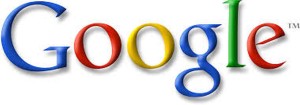The search engine consistently gives better answers than most Rabbis.
 Jerusalem, February 4 – The Chief Rabbinate of Israel will soon take up the question of whether to confer Rabbinic ordination upon the search engine Google, since it provides information on Jewish law at least as accurately and reliably as any human who has earned that title, a spokesman for the office announced today.
Jerusalem, February 4 – The Chief Rabbinate of Israel will soon take up the question of whether to confer Rabbinic ordination upon the search engine Google, since it provides information on Jewish law at least as accurately and reliably as any human who has earned that title, a spokesman for the office announced today.
Rabbi Eli Yahoo told reporters this afternoon that initial tests using the Google search engine returned halachically correct answers in the top three results more than ninety percent of the time, but that further testing was needed before the organization could consider granting Google the official title of Rabbi.
“We generally require that candidates for Smicha answer more than seventy percent of the questions properly,” said Rabbi Yahoo, using the Hebrew term for Rabbinic ordination. “Google consistently generates better results than that, and often provides multiple valid paths of halachic reasoning, as any good Rabbi should be able to do. We are going to keep submitting various questions to Google over the next several weeks to see what kinds of answers it gives, and that will serve as the Smicha exam.”
If it occurs, the Rabbinic ordination of Google will solve an ongoing problem in Orthodox Judaism, explained commentator Phil Terr. “More and more Jews, even among the Orthodox, rely less and less on the direct input of Rabbis in making decisions that have implications under Jewish law, and seek information independently, frequently online,” he said. “By co-opting Google, the Rabbinate can at least guarantee that such spiritual quests conducted on the internet carry the imprimatur of an ordained Rabbi.” He noted that many Jews who consult the search engine for information on Jewish law already refer to it as Rabbi Google.
Privately, several members of the Chief Rabbinate’s advisory council expressed reservations. “Some of the less prominent search results give us pause,” warned one Rabbi who spoke on condition of anonymity. “There are all sorts of unreliable sources, not to mention outright heresy, and while we understand Google does not actually believe them, the fact that they appear at all in the SERPs is a cause for concern.”
Another Rabbi voiced a separate issue. “You can’t ask Google anything on the Sabbath or most festivals,” when the use if electricity is barred, he said. “That’s about fifteen percent of the time. A Rabbi has to be more available than that. Then there are the technical requirements for eligibility, one of which is an affiliation with a recognized religious studies program. Google doesn’t have that.”
“Also, there’s the fact that the internet is unclean and forbidden,” he added.




